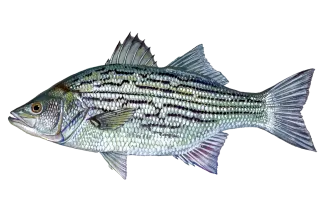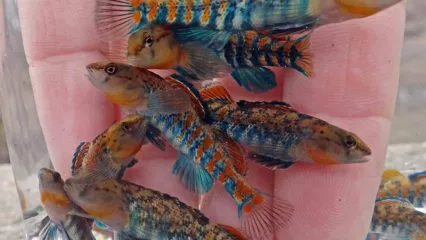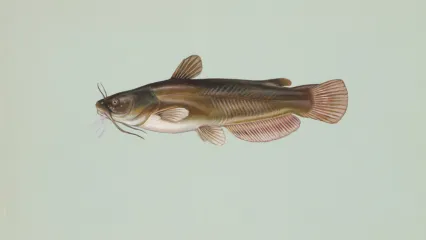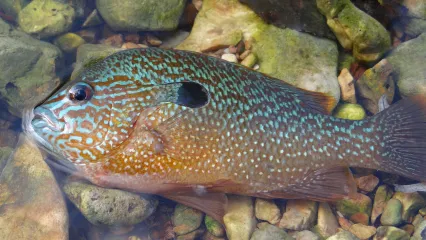
Description
The first Oklahoma stocking of striped bass hybrids was in Sooner Lake in 1977. Subsequent stockings have been made in lakes statewide including Konawa, Optima, Ft. Supply, Tom Steed, Altus-Lugert, Overholser, Grand, Heyburn, Atoka, Ft. Cobb, Salt Plains, Waurika, and Ellsworth.
The striped bass hybrid, which is a cross between the white bass and the striped bass, has a slightly arched back and two tongue patches. It also has some broken lines on each side. Similar-looking species are the white bass and the striped bass.
- The white bass can be identified by the distinctive arched back just behind its head. It also has only one tongue patch.
- The striped bass is not arched at the back and has two distinct tongue patches. It is also identified by the dark, usually unbroken lines on each side.
Facts: As a sport fish, hybrids are probably best known for their rapid growth and fighting ability. They can attain weights of six to seven pounds by three years of age and 18 to 20 pounds by eight to nine years of age. Hybrids are a valuable put, grow and take sport fish in lakes with large shad populations but with little suitable habitat for striped bass and white bass.
Habitat
Hybrids appear to prefer areas within lakes and streams similar to striped bass and white bass, typically traveling in large schools in open water.
Food sources: Shad, minnows, crustaceans, and insects.
Life Cycle
Striped bass hybrids are hatchery-produced by crossing female striped bass with male white bass. Although both male and female hybrids attain sexual maturity, natural reproduction has not been observed.


